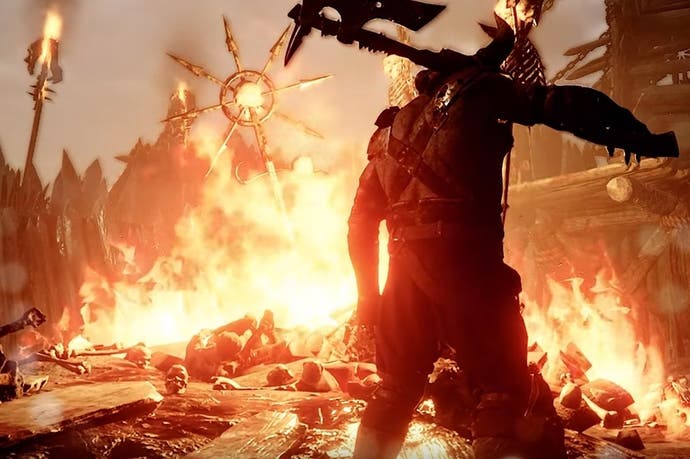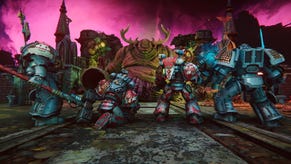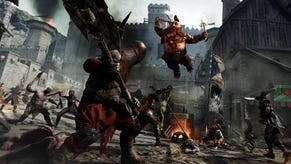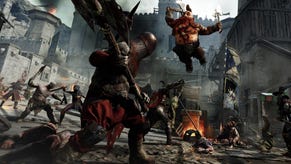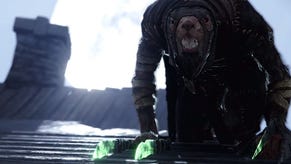Warhammer: Vermintide 2 review - a sequel done right
Sequels for the sequel god.
When it comes to tinkering with a game like Vermintide, it's very easy to muddle what made the original work - the video game equivalent of messing with the thermostat rather than putting another jumper on. I remember feeling that way when Left 4 Dead 2 launched; I loved the first game, but there was something about the sequel that felt off. I had issues with the pacing, chiefly, but there was something else about the experience that didn't quite work, like it had lost some essential part of what made it great along the way.
A lot of changes, additions and alterations have been ushered in for Vermintide 2 (the preposterously long name Warhammer: The End Times - Vermintide has been sensibly shortened to Warhammer: Vermintide 2, for one thing) and they combine to make a game that's considerably different in both scope and execution. Crucially, however, these changes do nothing to diminish the fun at Vermintide's chaotic heart. Rather, they build on the legacy of the first game to create a sequel that's simultaneously broader in scope and more streamlined than its predecessor.
For the uninitiated, Vermintide 2 plonks a team of four (out of five playable) characters at the start of a level, challenging them to see their mission through to the end without being torn to pieces along the way. Each of the five characters - Bright Wizard, Waywatcher, Witch Hunter, Dwarf Ranger and Empire Soldier - acts as a separate class rather than just a character skin, offering players roles to specialise in and squabble over. Tucked away in each level are three tomes and two grimoires. Tomes occupy the inventory slot reserved for healing tools, while grimoires take the place of potions. Both improve the quality of gear players receive as a reward for successfully completing a mission, although carrying them is not without risk - each grimoire reduces the players' health pool by a third, significantly narrowing their chances of success.
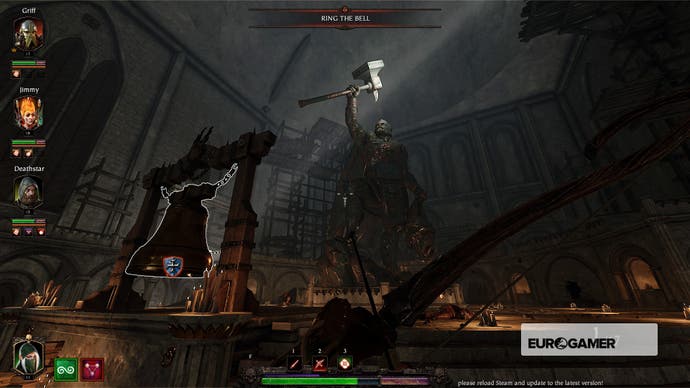
The rest is all hacking, slashing and shooting, and returning players will be reassured to hear that Vermintide 2's combat feels very, very familiar. Swords and axes bite into flesh with a sense of weight and feedback that few games can equal; arrows connect with a satisfying thwack, while rifles and pistols crack with a sense of authority. It all combines to make you feel extremely powerful - when things are going well, at least.
Familiar though the combat is, that's not to say that Vermintide 2 doesn't innovate. Each of the game's heroes has three different careers to choose from, all with their own passive traits and active abilities. The careers provide a sense of variety for each hero, allowing for proper character builds where before equipping a different weapon was about as far as changing each class went. Bardin the Dwarf, for example, can be played as a Ranger, allowing him to generate ammo for others and deploy a smoke bomb in the midst of battle, or you might choose to play him as a slayer - eschewing any ranged weapons whatsoever in favour of a strong focus on melee attacks. Players are also free to respec these careers between missions, so there's good room for experimentation.
The heroes of Vermintide 2 aren't the only ones with new toys to play with, mind you - the Skaven horde has brought some new friends along for the ride. There's an entirely new enemy faction in the form of the Rotbloods, a chaotic band of raiders from the north who are devoted to Nurgle, aka the god of pestilence. They're a refreshing bunch to have in the game, even if their manners are lacking; hearing them scream about spreading contagion and wholesale slaughter adds a sense of menace where the Skaven can seem a bit ridiculous or even cutesy. Both factions also bring new special enemies to the table, from the Blightstormers and Chaos Warriors to Bile Trolls and Chaos Spawns. These newly swollen enemy ranks are varied and tough enough to keep even experienced players on their toes - indeed, while the Stormvermin of the first Vermintide used to be quite intimidating, they're now a minor irritant compared to what else lurks in the shadows.
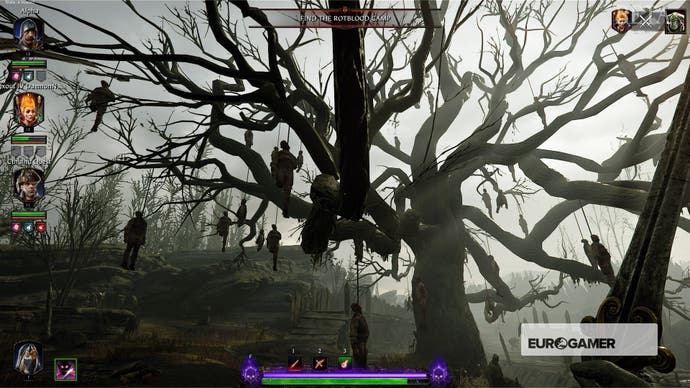
Refreshing and monstrous as Vermintide 2's new enemies are, however, it's in the level design that this really shines. There are 13 missions for players to tackle, and some of them are absolutely gorgeous. Hacking one's way through a forest or through the streets of towns brought to ruin by the rotbloods and ratmen, it's hard to resist the temptation to stop and look around at the level of environmental detail. The lighting is great as well - whether it's a warm glow suffusing the action or the flicker of a torch lighting a dank tunnel, there's a tremendous sense of atmosphere that's every bit as compelling as the game's combat.
Vermintide 2, then, is a very well made game indeed - it's smartly presented and a great deal of fun to play. As ever with something that relies so heavily on having an engaged player base, however, the question of longevity ought to be addressed. The first Vermintide had a choke point when it comes to the loot grind - a point past which you have to really work to get the items you want, either hoping the random number generator spits out the weapon you desire, or otherwise mulching enough weapons of the same quality tier to try and craft it yourself. It wasn't broken, per se, but it asked a lot of players without giving a lot back. Balancing that grind was undoubtedly one of the biggest challenges facing Vermintide 2, so it should come as no surprise there have been a lot of changes.
The reworked loot system has clearly taken a few of its cues from Destiny. Characters now have power levels, with gear contributing to an overall score. Damage output scales with power level, meaning in under ten hours I managed to kit out my Waywatcher with gear that put out about the same amount as damage as the best loot I managed to get in over a 100 hours spent playing the first game. What's especially nice about it is that, between the power level and the class abilities, the weapons themselves are no longer the be all and end all - their traits have been spread out among other systems just enough to avoid a frustrating wait for the perfect weapon, though there's still enough variation to make you sit up and pay attention to what you're wielding.
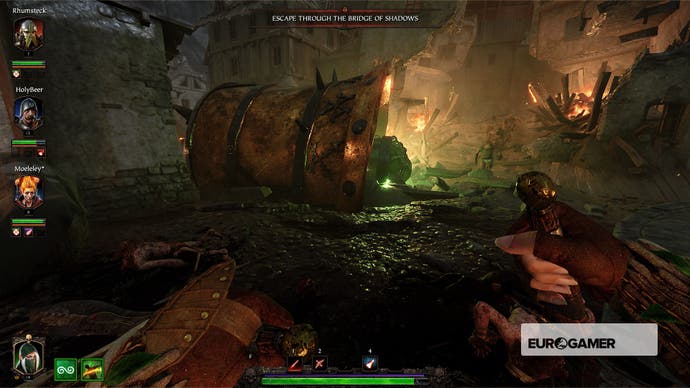
The result is that you're a lot freer to experiment, especially in the early game - I found myself trying lots of different weapons for fun when before I might have stuck doggedly to just one weapon because it had the best stats. Gear itself also comes in at a faster clip thanks to the new crate system. Each time you level up or successfully complete a mission, you get a crate of a certain quality tier depending on how well you did. Each contains three items, of which one is always a weapon, meaning you accumulate new items at a much faster rate. It's a more generous and rewarding loot system in other words, always encouraging you to do just one more run. It's also a system entirely free from microtransactions, blessedly keeping the focus firmly on playing well rather than coughing up a few quid.
If there was one other thing from the original game that really needed to be addressed for the sequel, it was stability. While Vermintide was definitely improved by way of a number of patches, it's fair to say the game's initial launch was a bit wobbly. A number of bugs and stability issues made the game rather frustrating at points, so it's a relief that the second instalment is largely free from these issues. There are a couple of minor gripes, of course - at the time of writing the odd crash is not unheard of, but largely it's a game in rude health.
Vermintide 2 is a sequel done right. It's not overly ambitious or outlandish, instead choosing to build smartly on the solid foundations of its predecessor. New players will find a varied, exciting cooperative melee game - returning players will find the same well honed action, now free of many of the drawbacks of the original. With a passionate and - compared to other games - refreshingly friendly community behind it, this is a game I can see myself playing for a very long time indeed.
